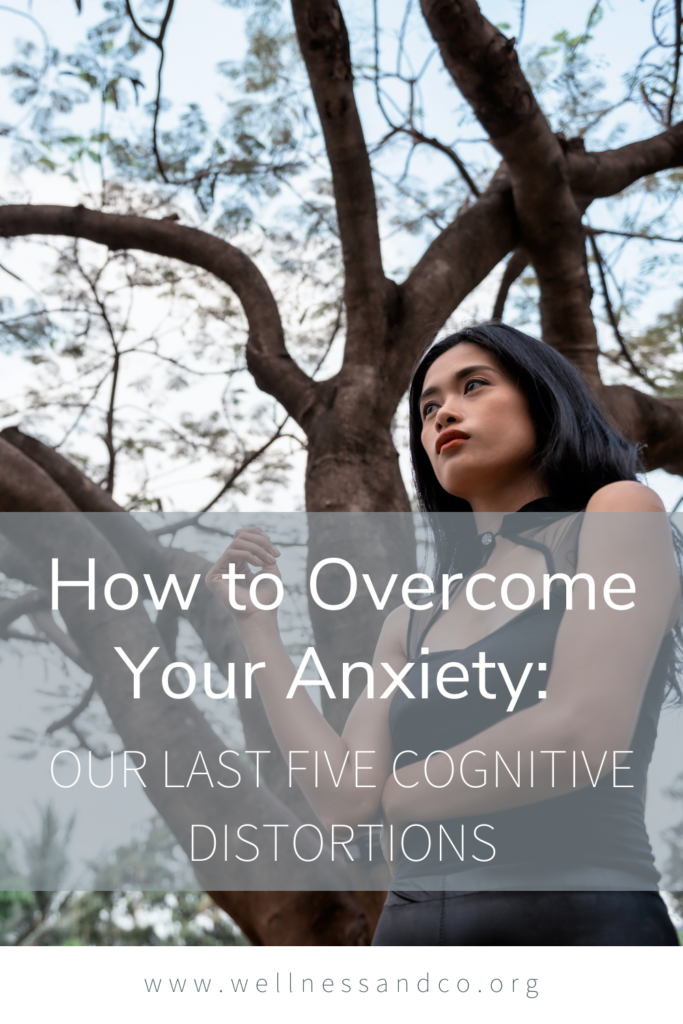Follow
Wellness & Co.
Hi, I'm Dr. K, Wellness & Co. is a growing therapy/coaching practice and educational hub for prospective clients based in Maryland and virtual clients all over the world!
Hi, I'm Dr. K
free guide
e -books
e -course
How to Overcome Your Anxiety: Our Last Five Cognitive Distortions
October 23, 2020
by Jessica Smith, LCPC
And finally, our last five distortions to cover!

Here’s Emotional Reasoning.
This distortion involves internalizing our emotions so that we believe what we feel must be true. For example, “I’m feeling sad today. I’m such a miserable person” or “I’m feeling overwhelmed, so I’m not going to be able to solve this problem.”
Have You Ever Caught Yourself Trying to Change Others?
With this distortion, we feel the need to try to change others to suit our needs because we depend on others for happiness. This can occur especially in romantic relationships when we try to “save” our partner from their troubles and attempt to change them to fit a certain mold.
And Then There’s Global Labeling (or Mislabeling).
This distortion entails extreme overgeneralizing and mislabeling with overly negative attributes or explanations for others’ behaviors. This distortion typically involves a lack of empathy as well. An example could be concluding a peer is a terrible mother when she doesn’t pack her child a healthy lunch for daycare.
Next is Always Being Right.
As the name of this distortion implies, we feel the need to always be right and defend our opinions and actions at all costs, including our relationships with people we care most about. Always needing to be right limits our own personal growth as it leads us to be unable to learn from other perspectives or practice empathy for others.
And Finally, the Reward Fallacy.
This distortion is the belief that our good deeds will somehow always be rewarded by others or some higher power, and we feel bitter when they are not. For example, “I’m going to have such a good day because I bought a stranger’s coffee in the drive through line this morning.”
Wrapping Up
Phew, we made it. If you’re feeling a little overwhelmed by all of these distortions because you can see how you’ve engaged in a lot of them, remember it’s OK as it is completely normal. Also, as we’ve already discussed, the good news is we can work on it- read on to learn more about how!
Up Next: What CBT Says We Can Do About It!
Source: https://psychcentral.com/lib/15-common-cognitive-distortions/
Jessica works with growth-minded individuals and couples motivated to deepen connections with themselves and in their relationships. She encourages her clients to consider new perspectives so they can gain insight and understanding while also exploring new tools for communication and coping.
Leave a Reply Cancel reply
CONTACT
Start Here
BLOG
OUR TEAM
SHOP
ABOUT
©2025 Wellness & Co. | All Rights Reserved | Design by EverMint Design Studio
BACK TO TOP
connect with us on instagram
